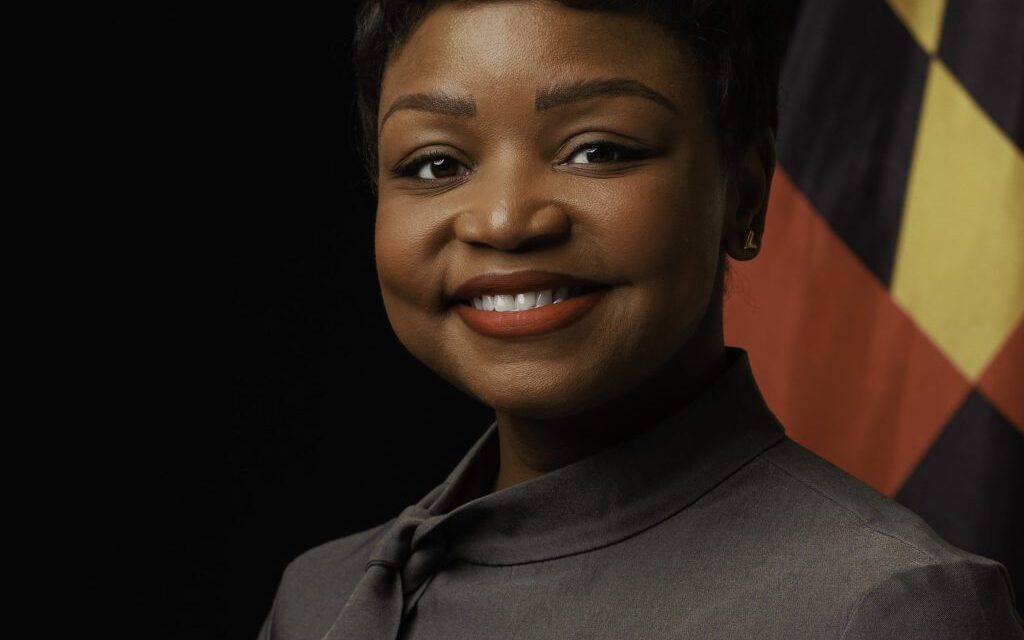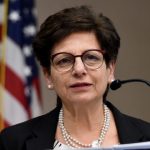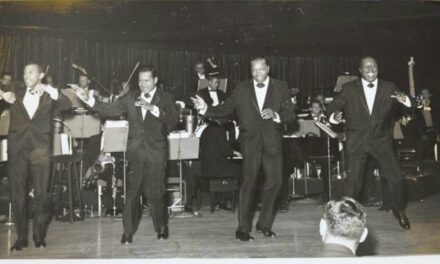By Angela G. Galeano
Many things are synonymous with summer in Baltimore. An egg custard snowball with marshmallow topping at Ice Queens, digging through a pile of crabs in search of the heaviest crustacean at a family cookout, and–unfortunately–the scream of dirt bikes flying up the street.

That last image conjures up mixed emotions for many Baltimoreans. Some see themselves in these young men and women, enjoying the feeling of invincibility that comes with being young. For others, the loud bikes weaving in and out of traffic and on sidewalks are more than an annoyance– they can be frightening for both pedestrians and drivers. It is for the safety of everyone in the community, including the young people riding helmet-less and driving at break-neck speeds, that compels State’s Attorney Ivan Bates, as the top prosecutor in the City, to enforce the laws already on the books regarding dirt bike riding.
Furthering our prioritization of collaboration and partnership, with thanks to the Mayor and to other city officials who offered their support of the citation initiative, announced by State’s Attorney Bates last July, the enforcement of laws against illegal dirt bike activity is tempered with reasonable alternatives to prosecution. We have developed a plan with BPD that is intended to prevent individuals from fueling dirt bikes at city gas stations. Due to current departmental policies, BPD does not issue citations to juvenile offenders. However, through greater vigilance and concern for our youth, we have worked with law enforcement to emphasize the role that parents are required to play to ensure that their children are not allowed to ride a dirt bike.
Dayvon Love, director of public policy at Leaders of a Beautiful Struggle, is a committed activist and devoted advocate for Black and Brown people. However, we question his understanding of our office’s work in his recent article in the AFRO, “Dirt Bikes, Black Youth and Baltimore.”
Mr. Love references B-360, a stellar organization led by founder Brittany Young, as a superior alternative to traditional punishment in reaching dirt bike riders. Combining STEM education and workforce training, B-360 prioritizes connection with dirt bike riders, encouraging them to channel their interests into a productive outlet. Mr. Love clearly does not understand that our office is an active partner with B-360 in the facilitation of our Citation Docket. We refer citation offenders to this innovative organization instead of traditional prosecution.
Mr. Love goes on to say, “Many of the youth who ride dirt bikes are young people who aren’t reached by existing mainstream interventions.” This false narrative is one that the State’s Attorney has been actively combatting since his first day in office when he announced that accountability would return to Baltimore.
Mainstream interventions, whether it’s citations or juvenile services, can and should reach young people and change the direction of their lives when they begin to stray down the path of illegal activity. This year, State’s Attorney Bates advocated in Annapolis for changes to our juvenile system so that young offenders can receive more substantive resources through programs and services in a timely and impactful manner. The goal should be to make mainstream interventions more effective, not to take away intervention altogether so that people are left with nothing.
Furthermore, Mr. Love says that dirt bikes should be returned to individuals when confiscated. We could not disagree with this more. What kind of message does that send about how seriously we take this illegal activity? The law clearly states that dirt bike riding and improperly storing dirt bikes in the City of Baltimore is illegal. To return bikes to children, as young as 10 or 11 in some cases, so that they can go back out and ride 70 mph down Franklin Street– with no helmet– is irresponsible and dangerous and lacks any regard for that child’s safety.
Taking care of Black communities, especially our children, means making neighborhoods across Baltimore safe for every age group. However, because we genuinely believe in the work that B-360 does and the vital service they provide our community, the State’s Attorney would support B-360 being able to take ownership of the confiscated bikes to use for parts and educational resources within their program.
The evidence that dirt bike riding in our city is dangerous isn’t speculation. In October 2021, a dirt biker died after colliding with a fire truck on Hineline Road. In December 2022, a dirt bike rider ran a red light and collided with a vehicle on North Avenue at Bentalou Street, leaving them in critical condition. In July 2022, a dirt bike rider was killed in a crash in the Harlem Park neighborhood. As a mother, I cannot fathom telling a parent that their child was killed in a dirt bike accident after law enforcement returned the bike to them in a city where that very bike is classified as illegal. These examples don’t even touch the surface of the stories of pedestrians and drivers whose lives have been compromised by dirt bike riding—a subset of people Mr. Love appears to have forgotten about or simply overlooked in his article.
Enforcing the laws on the books for dirt bikes is not an attack on the Black community, as Mr. Love would want residents to believe. It is restoring safety to the community for residents in an effort to keep children safe. As a Black man, the State’s Attorney understands the failures of the past that led to mass incarceration. It is one of the primary reasons he collaborated with our partners to develop more innovative ways to address low-level offenses, like our Citation Docket initiative. Our goal is to balance accountability with community engagement, prioritizing opportunities for diversion to connect people to resources and generate much-needed community service for disenfranchised neighborhoods in our city. Individuals who find themselves on the Citation Docket have the chance to avoid a criminal conviction by taking advantage of these opportunities to change their life trajectories. But, as prosecutors charged with delivering justice on behalf of victims and their families in order to create a safer home for our children to grow up in, we cannot understand the rhetoric that a “hands-off” approach is the only way to protect Black and Brown people. We have seen from past policies that it undoubtedly does the opposite. As the mother of two very active young children, I believe most parents and professionals would agree that young people need more structure, not less.
B-360’s effort to establish a dirt bike park in Baltimore is innovative and forward-thinking, and we fully support it. Still, without this safe space for riders, we cannot and will not endorse illegally riding in our streets. Again, what kind of message are we sending our young people if we support or, even worse, encourage illegal activity? We sincerely appreciate B-360’s partnership as we work towards a future where every community member can safely enjoy summer in Baltimore. I would encourage Mr. Love to listen to the concerns of Baltimore residents of all backgrounds who share this same goal.
The post Protecting young Black lives and the neighborhoods we call ‘home’ appeared first on AFRO American Newspapers.











